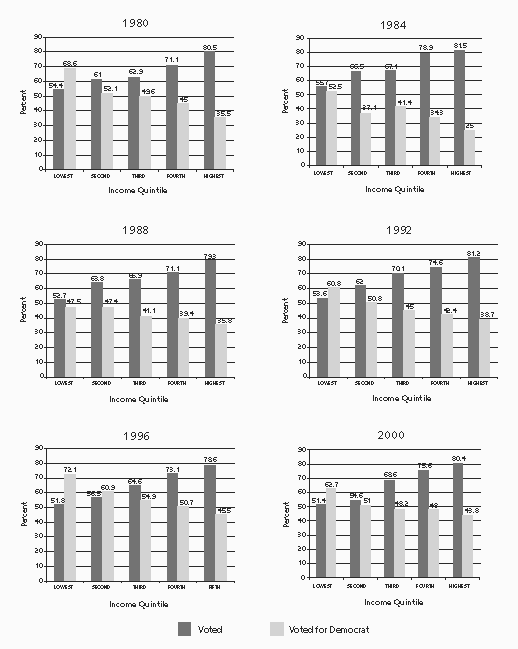It's an excellent book, a must-read for activists under late capitalism, who need to understand the power of finance capital over the fate of workers of the world.
Despite the use value of his book, "[t]he author made less than $10,000 on this book for six years of work, even though it sold over 20,000 copies. So please consider a contribution here (via Paypal)," says Henwood.
Why so little money made on such a good book? Henwood explains:
I signed the contract in 1990, when Verso was entirely based in London (no New York office, aside from a desk at their distributor, which was Routledge in those days). I was so happy to get a book contract I didn't care about the terms, but the terms really sucked. The royalty rate was low, 8.5% of the cover price (vs a standard 10% or higher even) -- but even worse, that rate applied only in the "home market," which was defined as the UK. The US was part of the "export market," and royalties on those sales were computed on the wholesale price, not the cover price, effectively halving the royalty rate. So, almost all the sales -- 20,000-25,000 copies, never got a rigorous accounting -- were computed as exports. (LBO-talk 10 Mar. 2005)That's a shocking rate of exploitation.
Henwood is a freelance journalist. According to the National Writers Union, rates that freelance writers like Henwood get have declined since the mid-1960s, much more steeply than real wages of other workers: "In real dollars, freelance rates have declined by more than 50 percent since the 1960s. And while rates have gone down, publishers are getting more for their money. . . . Writer's Market, which reports what magazines themselves say they pay, shows that writers' rates at the top magazines have declined by two-thirds to four-fifths since 1966, far more than the approximately 20% loss in real hourly wages that the average American worker suffered during the same period. Writers' real rates were falling even in the late '60s and early '70s when most workers' wages were rising." ("Report on Pay Rates for Freelance Journalists," 2001-2002).
It is no wonder that at least three quarters of book writers depend on day jobs: "Averaging 48 years of age and 34 writing hours per week, authors [of novels and nonfiction books] have been writing professionally for 17 years and earn a median income of $7,500 from freelance work. Those committed to multiple genres put in 26 hours a week on their primary field and 13 more on magazine features, short fiction, or other assignments. In addition, 75 percent earn nonwriting income, working an average of 16 hours in a nonwriting field for $17,500. An author's work week can top 55 hours for a total income of $25,000" (Nancy DuVergne Smith, "Novelists and Nonfiction Authors: Making Books for $7,500 a Year," July 21, 1995).
The Right complain that Democrats outnumber Republicans among journalists. While the proportion of Democrats among journalists has declined since the peak of 1992, it is true that there are still more Democrats (37%) than Republicans (18.6%) among them:
Why? Probably because the lower people's incomes are, the more likely they are to vote Democrat than Republican:
("Fewer Journalists Say They Are Democrats," Poynter Online 10 Apr. 2003)
The median hourly earning of "[n]ews analysts, reporters and correspondents" in 2003 was $15.25 (Bureau of Labor Statustics, "November 2003 National Occupational Employment and Wage Estimates: Arts, Design, Entertainment, Sports, and Media Occupations"), only slightly above $13.65, the median for all occupations (Bureau of Labor Statistics, November 2003 National Occupational Employment and Wage Estimates: All Occupations). Note that "[t]he survey excludes the self employed" ("Technical Notes for November 2003 OES Estimates"), so the median earning cited above overestimates journalists' earnings. Given the difficulty of obtaining full-time work and moderate earnings (especially relative to their educational attainment) of even those who are lucky enough to be employed, journalists' partisan identification shouldn't be surprising. One only wishes that journalists, as well as other working-class Americans, could organize a political party that actually promotes a robust pro-working-class agenda, rather than one that is merely the lesser of two evils. Reading Wall Street doesn't give activists an answer to how to organize such a party -- it, however, gives us a clear picture of what we are up against.
(Esther Cervantes and Amy Gluckman, "Who Votes, and How?" Dollars & Sense 251, January/February 2004)
Postscript:
Read Daniel Davies's and Max Sawicky's testimonials vouching for the virtues of Wall Street: Daniel Davies, "Internet Blag of the Year -- 'Wall Street,'" Crooked Timber (8 Apr. 2005); and Max Sawicky, "Open Source Political Economy," MaxSpeak (8 Apr. 2005).







1 comment:
On the subject of stocks: I was pondering recently on how apartment dwellers could pay rent as stocks. I'll have to check into it, but I guess that idea is something like the condominium.
I noticed recently that an apartment a few doors down from mine had become vacant. I suspect that the person living there had been evicted. She supposedly had been living there for some 20 or 30 years. She had a stroke or something the past few years, and was forgetful in conversations. She probably had simply forgotton to pay her rent on time.
At this apartment center, like possibly other apartment centers, three tardy rent payments (even one day late) within a year is automatic eviction. That is awlful that a person whom has paid $400 to 500 per month rent, many thousands of dollars over 20 some years is evicted on tardy payments.
With any person living at an apartment center, all the money that they have ever paid in rent is gone. It has been no investment for them or their future. But a person whom makes payments on a home has an investment. The home increases in value. Later in the owner's life the person can sell the home (often large for a family raised and departed), and buy a smaller home and retire on the extra money from the larger home.
Seems that some portion of the person's rent could be invested as stock that could be rewarded to the renter later in his life. Or, like the equipment or appliance rentals you see advertised. You pay rent on the equipment/appliance. Once the rent you have paid accumulates to the value of the appliance (besides some portion to the company), you become owner of it. I remember that high school band students paid rent on their musical instruments until becoming owners of the instruments.
Lots of people at this place, like the lady a few doors down, have paid enough rent to own a home. The apartment center, incidently, is a cooperative. Of a three hundred dollar deposit, two hundred is put into a stock. But is really just more or less a deposit. It has no increased value of investment when the person leaves the apartment center.
It can actually be worse for residents at this cooperative than other places because a board of directors is "elected" by corrupt, under-the-table controls of the management here. When there is an issue about a person here, the management has a board of directors siding with them "representing the people" of the cooperative. A tenant issue here is not just tenant verses management like other places, though that is what it really is here.
The board of directors enjoy their prestige, and you see their honorable positions on their published resumes. I was on the board of directors for a while and quit because a lawyer on a yearly salary by the cooperative (but serving the management) was on my back. I did try very hard to represent the people here and was getting into trouble for it. If I had stayed on the board I may have lost everything I had because of him.
I guess the point of this is, I have experienced the tenant's position at an apartment center and seen the possibility of how a tenant could be represented and his rent made an investment with a cooperative system. It has failed, though, with the management realizing this first.
But with the efforts of tenant advocates, there should be successful cooperative systems for apartment dwellers. It seems the tenants should have some investment from their rent payments and at least some of the economic security home owners have. We are promoting urban sprawl by giving economic security to home owners.
Don Nelson
http://groups.yahoo.com/group/Dem-OH-Franklin/
Post a Comment